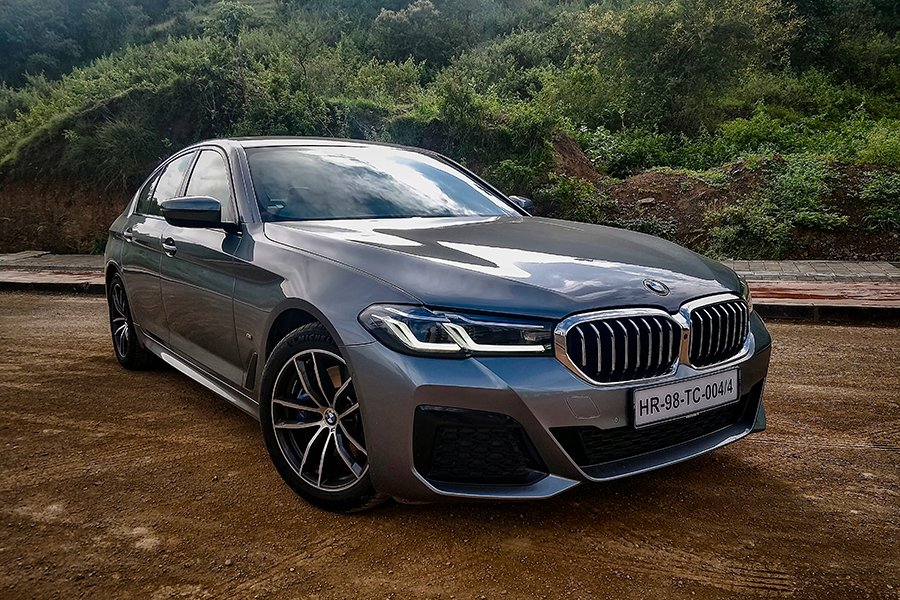BMW Group India, which has led the premium electric car field in the nation for the past two years, plans to localize its electric vehicle (EV) portfolio as volume grows, according to a senior company official.

In 2023, the firm sold 1,474 EVs, a 325% increase over 2022, when around 347 units were supplied. Its electric lineup consists of five fully built-up (CBU) models: the BMW iX1, BMW i4, BMW iX, BMW i7, and Mini 3-door Cooper SE.
Read More: Google Pixel Fold 2 is expected to arrive later this year
While the BMW iX sold 694 units in India in 2023, the Mini 3-Door Cooper SE sold 239 units, making it the best-selling premium electric hatchback.
EVs accounted for more than 10% of the company’s highest-ever annual automobile sales in 2023, totaling 14,172 units (13,303 for BMW and 869 for Mini).
BMW Group India President Vikram Pawah told India Today: “At the present, EVs are a very new industry for us. 2023 marked the first full year of EV sales in the country. We have been able to generate 10% of our sales from EVs. So, as the volume increases, we anticipate that we will begin to consider when to localize, just like we would with any other product. So it is only a question of time.
Pawah feels that premium electric vehicles have a promising future in India and will expand in the next years. “I think it will definitely increase. When discussing the premium space, you must comprehend the customer’s attitude. These consumers are a little more progressive, and they prefer to use the most recent technologies. “I believe EV penetration is higher in the premium space than in the mass segment,” he remarked.
Unlike the mass market, which is dominated by sport utility vehicles (SUVs) with sedans declining steadily, sales in the luxury segment are more balanced, as seen by BMW’s performance in 2023.
The SUV market accounted for 54% of the company’s volume, while the sedan segment made for 46%. The X1 was the best-selling SUV, with 2,633 units, followed by the X7, which sold 1,513. The 3 Series was the best-selling sedan, with 2,702 units, followed by the 6 Series (1,453 units).
“We’ve always maintained a decent mix between SUVs and sedans. Our proposition to our clients is that at every price point, they should be able to pick between an SUV and a sedan. This provides the client an option based on their usage requirements. That is why we find a really excellent combination of 54% SUVs and 46% sedans. “That’s a very close mix,” Pawah explained.
The petrol models accounted for 54% of the entire volume of the firm. Diesel cars’ proportion declined from about 65% five years ago to 36% in 2023.
Pawah commented on the reduction, saying, “We have to remember that when it was 65%, it was not based on customer needs, but on fuel policy, because diesel was cheaper than petrol at the time, which created demand for diesel vehicles.” As soon as the fuel subsidy was abolished, natural demand for diesel began. So what we see right now is a natural demand that is unaffected by any external factors.”
While the luxury automobile industry had its highest-ever yearly volume of about 41,000 units in 2023, surpassing the previous high of roughly 40,000 units in 2018, Pawah predicted that it will rise even more in the future.
“Compared to the rest of the globe, we are far behind in the luxury automobile segment, with only 1.2% of the entire market in India. Even close Asian economies have penetration percentages ranging from 3 to 8%. China is at 17%. Europe is at 24%. So there is plenty of room for us to expand. It will undoubtedly expand as the economy expands and as people’s ambitions rise. “The only debate is about the rate of growth,” he stated.
Aside from internal combustion engine (ICE) and electric variants, BMW also provides a hybrid model, the flagship BMW XM.
According to Pawah, all technologies will coexist in the future since each customer’s requirements will be unique. “Depending on your need, even in the future, electric hydrogen, and traditional engines will coexist, until some regulation comes in that stops that,” he went on to say.
